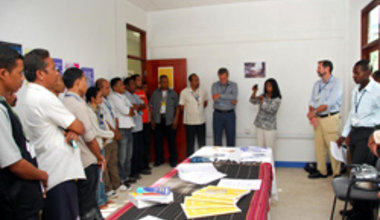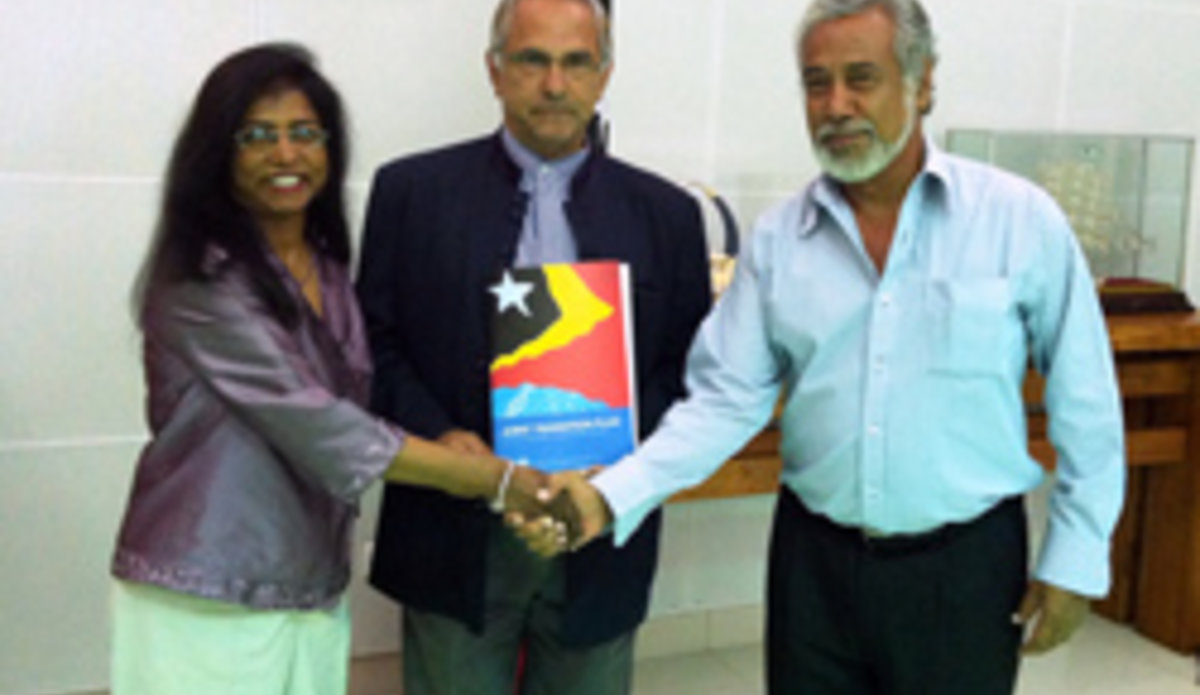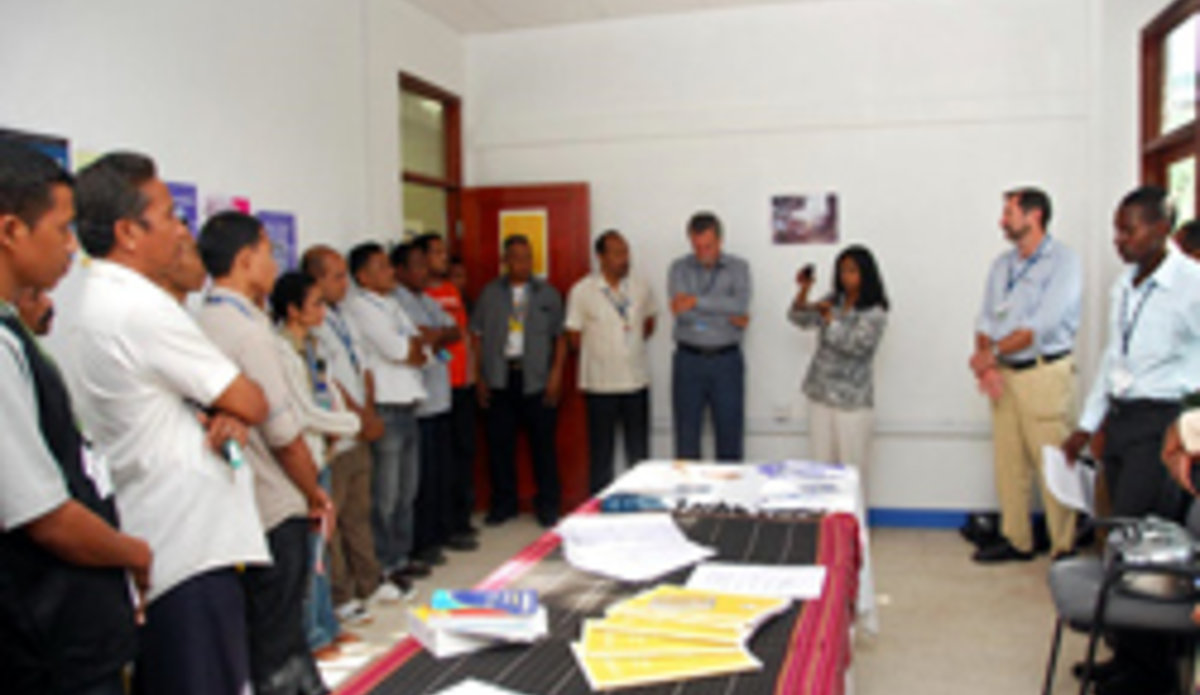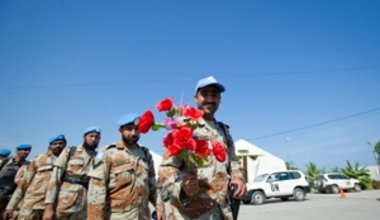From Policy to Practice: An innovative transition in Timor-Leste
New York, 22 February 2012 - Senior representatives from Timor-Leste, the United Nations peacekeeping mission (UNMIT), and UN agencies today (22 February) are discussing with key member states the nature and scope of UN programmes.
The consultation comes in the context of the stable security situation in the country and the growing capacity of state institutions. This has led to joint planning by the leadership of Timor-Leste and UNMIT, the first of its kind in UN peacekeeping, to ensure a seamless transition from peacekeeping to a new phase of UN engagement following UNMIT's expected closure in December 2012.

UNMIT's transition is part of a broader policy agenda about how the international community works in countries emerging from conflict and fragility. On 25 January, the Secretary-General announced his action agenda for the next five years, with support to nations in transition as one of five priorities. Last year, at the fourth High-Level Forum on Aid Effectiveness, the g7+ Group of Fragile States, led by Timor-Leste, championed a "New Deal" for donor engagement in conflict-affected countries. Timor-Leste, whose minister of finance, Emilia Pires, currently chairs the g7+ is one of the pilot countries of the New Deal.
"We are excited in the field to be putting into practice major policy developments," says Ameerah Haq. "Timor-Leste offers a golden opportunity to get transitions from peacekeeping right, and to deliver results on initiatives such as the New Deal. I believe we have everything in place for this to be a success for Timor-Leste and for the United Nations."
Underpinning the transition is a joint plan, signed by President Ramos-Horta, Prime Minister Xanana Gusmão, and SRSG Haq on 19 September 2011. The plan details what UNMIT does to implement its mandate and sets out which of these activities will be completed by December 2012 and which will need to be handed over to a state institution or an international partner. Implementation of the plan is monitored by a High-Level Committee on Transition, chaired by the President and bringing together senior officials from the Government and UNMIT.
Cutting across all transition initiatives is a strong emphasis on capacity-building for Timorese staff and institutions. All UNMIT sections work closely with their national counterparts to transfer skills and know-how in their areas of expertise. In addition, the Mission has embarked on an extensive capacity-building programme for its national staff. The programme offers a range of learning opportunities, in Timor-Leste and abroad, stretching from English language to vehicle maintenance to how to start a small business. Courses are also open to staff from state institutions.
With these transition initiatives, UNMIT is maximising its contribution to Timor-Leste's future stability and laying the foundation for a continued strong UN engagement in the country beyond 2012. As the meeting with member states closes, that goal may be one step closer.
 UN
UN United Nations Peacekeeping
United Nations Peacekeeping






